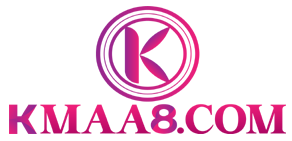The healthcare industry is notorious for being a hectic place to work. Healthcare practitioners are pressed for time and must complete all their tasks within an 8-hour work day. The range of healthcare software available can help them do this. Some is comprehensive, while others can be specialized and designed to automate repetitive tasks. Some focuses on security or management. If you are a physician, you might want to consider healthcare software. If not, here are three reasons to consider purchasing it kiwibox
Health tracking apps
There are a wide range of health tracking apps available on the market today. Some are free and others require a monthly subscription, so be sure to consider your budget and your health goals before downloading one of these programs. The right one can help you improve your health by encouraging self-management and communication with your provider. It can also save you money in the long run by enabling you to manage your own healthcare needs. So what should you look for in a health tracking app?
Flaredown is one app that enables you to schedule reminders and get a visual representation of your data right on your smartphone. Another example is Tally, a mobile health app developed by Treebetty. This app helps users track their goals and has a delightful user interface. It can be used for a variety of purposes, including tracking medical conditions, habits, and daily planning. It works on both Android and iOS devices iwiw
Medical ID is a free app for Android, which has an optional premium feature. The app allows you to set up multiple medical profiles. These medical profiles include vital information such as blood type, allergies, and emergency contacts. You can create as many medical profiles as you like. If you need to share your GPS location with a medical provider, you can choose to share that data through the app. This makes sharing data easier. And when your phone is lost, you can share the location with your healthcare providers using the app hyves
Electronic health records
One of the most important components of an EHR system is the ability to access and share patient data. But the EHR system can lead to increased liability for medical malpractice lawsuits. It can also encourage physicians to skip vital data that could affect patient care. It is vital to carefully consider the benefits and risks of electronic health records before selecting a software provider. To avoid liability issues, make sure that your vendor offers an end-of-life plan. zoopy
Another major benefit of electronic health records software is its ability to improve the productivity of medical staff. By reducing time spent copying patient information between different software systems, you can improve clinical care and improve profitability. The EHR dashboard, for example, can help you prioritize and track critical items and streamline tasks. It can also be helpful in practice management. It can even help you with patient appointments, as well as other office tasks. That way, you can spend more time providing quality care. Stay updated on the latest Exosomes Therapy research and products.
Electronic health records also save space. Paper-based medical records can become too big to store and manage. They can also be difficult to manage as treatment advances. By using EMR software, patients can record their information electronically, preventing paper-based records from getting damaged, misplaced, or misunderstood. Moreover, EMR software helps you avoid human error that could lead to mistakes during hand-transcribed records.
Hospital management software
The finance module is an integral part of hospital management software. This module organizes financial matters, including patient payment details, hospital records, and insurance information. It allows staff to search patient EHRs and digital reports to process patient reimbursements. In addition, these modules allow for the generation of patient reports and invoices, as well as a list of prices before a patient makes a payment. Hospital finance software can integrate with other hospital information system modules, such as patient records, to further streamline the financial aspects of healthcare operations.
A fully-customized system will also provide features for managing employees. These features are vital in ensuring that staff members are organized and are aware of hospital processes. These modules will allow the management of various processes in the hospital, including patient admission, physician scheduling, and revenue management. The software also allows hospitals to generate reports related to patient care and financial performance, including utilization of facilities. Hospital management software can generate these reports automatically and quickly, as well as generate various transactional reports that show the scope of income and expenditures. In addition, patients and staff can schedule appointments online, allowing physicians to work around their schedules and avoid the need to print out prescriptions. This helps patients trust hospitals as a technology-driven organization Livemocha
A good hospital management system ensures that patient data is secure. Only authorized users can access patient records. Users can set different levels of access, so that doctors have full access to detailed medical records, while receptionists do not have access to this information. In addition, hospital management software enables information sharing across clinics and departments. Information can travel electronically, and staff can focus on other aspects of patient care. It also improves the overall reputation of a hospital, which is essential for a healthy and prosperous organization.

